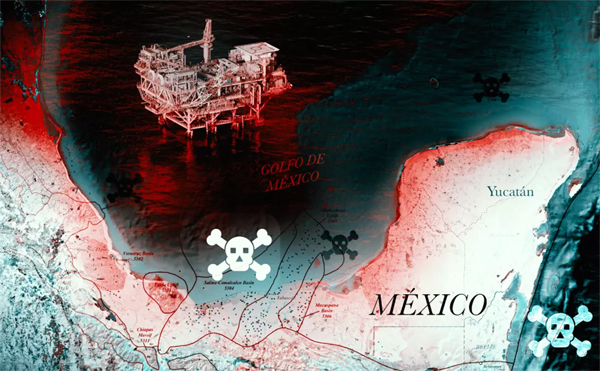
Rebecca Conan, Argus Media
MEXICO CITY
EnergiesNet.com 09 15 2022
A recent spike in thefts from shallow-water oil platforms and support vessels in the heart of Mexico’s offshore oil and gas industry has worsened delays and economic losses for both state-owned Pemex and non-state operators.
But while the recent surge in incidents is set against a longer-term downward trend in attacks, criminals continue to operate with complete impunity.
“The navy implemented a security operation in 2019 to combat criminality in the Campeche sound but it has been of limited efficiency as no one has been arrested for criminal acts,” president of the senate energy commission Rocio Abreu told Argus.
The commission she represents wants to make sure that the investigations are completed towards stopping the thefts and recovering equipment, Abreu said.
The most recent incidents include thefts from offshore platforms operated by Pemex and Russia’s Lukoil in June and an attack on oil services company Protexa’s Crest Tarasco vessel off the coast of Dos Bocas, Tabasco, in May.
The number of attacks on offshore platforms and services vessels has doubled this year to 22, compared with 11 last year, with four attacks carried out on a single night in June, Cameron Watson, analyst at maritime security consultants Dryad Global told Argus.
But following a peak of 273 incidents in 2017, attacks have declined since 2020 as Pemex and the navy have invested in additional security measures, such as naval patrols in the Bay of Campeche, Watson said.
The attacks this year have followed a well-established modus operandi with groups of from five to 15 armed individuals boarding offshore platforms or oil service vessels from small fiberglass-hulled craft, similar in appearance to local fishing boats.
Attacks have taken place at night, targeting personal items belonging to crew, equipment such as mooring ropes, scuba gear, metal pipes and easily transportable cargo.
But while criminals previously targeted remote and minimally staffed platforms, recent attacks have included Pemex’s largest complexes across the Cantarell field as well as the newly launched Ichalkil field operated by Lukoil.
The methodology of the attacks indicates that the perpetrators are low-level criminals likely operating at the behest of criminal gangs ashore, Watson said.
While the attacks have yet to result in serious injuries or deaths, gunshots were fired during May’s attack on Protexa’s Crest Tarasco vessel, an employee onboard during the assault told Argus.
The navy responded within 30 minutes of the Crest Tarasco’s alarm call but the employee expressed concern about the increasing number of attacks in the region and the lack of communication from the navy about how it would respond to active robberies if employees are held hostage.
“If Pemex and the navy do not take action, it not only puts workers lives at risk but also crude production and that could cause an impact on the Mexican economy,” Abreu said, calling for increased investigations into the attacks.
There is a lot at stake if the security situation worsens — $12.3bn in approved investments this year in shallow and deepwater blocks — and Russian operator Lukoil has already had to delay exploration work by four months on its shallow water block 12 “due to insecure conditions,” according to oil regulator CNH.
The Mexican navy is required to protect a vast area of offshore acreage — 81,998 km² (31,660 mile²) across 60 exploration and production contracts and 97 Pemex blocks.
But most attacks take place relatively close offshore from Ciudad del Carmen in Campeche and Dos Bocas.
“The government does not have the necessary tools or resources — patrols, weapons or technology — to fight criminals at sea,” Adriana Avila, academic at the World Maritime University, told Argus.
By Rebecca Conan
argusmedia.com 09 13 2022











